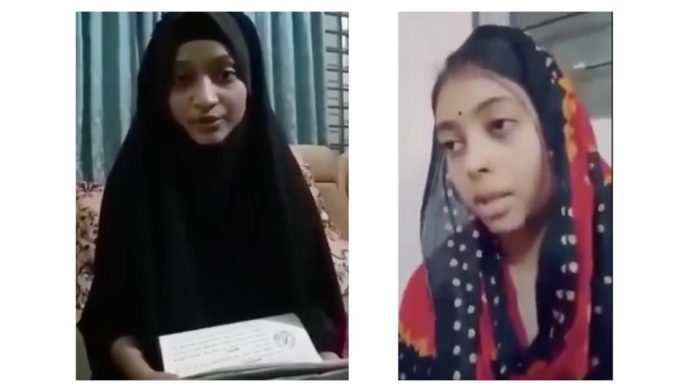In yet another grim reminder of the deteriorating state of minority rights in Bangladesh, a 15-year-old Hindu girl, Swapna Rani Ghosh, from the Bagura district has been forcibly converted to Islam and married to a Muslim youth. This brazen act of coercion highlights the deepening crisis of religious persecution against the Hindu community in the country. Swapna’s family has alleged that her documents were deliberately forged to falsely show her as 18 years old, a tactic frequently employed to bypass legal scrutiny.
Adding insult to injury, Swapna, like countless other victims, appeared in a scripted video parroting statements prepared by Islamist Dawah groups to legitimize her conversion. Such videos, designed to silence opposition and justify the forced conversions, have become a chilling hallmark of the systematic targeting of Hindu girls in Bangladesh.
Reports of the militant organization Jamaat-e-Islami being involved in the forced conversion of Ritu Chakraborty, another minor Hindu girl, have further exposed the complicit silence of the Bangladeshi government. The growing influence of radical groups, coupled with the state’s indifference, has emboldened these elements to continue their campaign of erasure against Hindu minorities.
The issue goes beyond individual cases of forced conversions. Members of the Tripuri Hindu community, an indigenous group in Bangladesh, are facing relentless pressure to abandon their faith. Reports indicate that local figures, often backed by financial incentives and political protection, are actively working to convert members of this vulnerable community. Alongside religious persecution, Tripuri Hindus are battling issues like land-grabbing and cultural erosion, further marginalizing them in their ancestral homeland.
The Bangladeshi government’s inability—or unwillingness—to act has left the Hindu minority community in a perilous situation. Despite international outcry, Dhaka continues to ignore the rampant forced conversions, allowing Islamist groups to operate unchecked. This failure not only violates Bangladesh’s constitutional promise of religious freedom but also raises serious questions about the government’s commitment to safeguarding its minority citizens.

